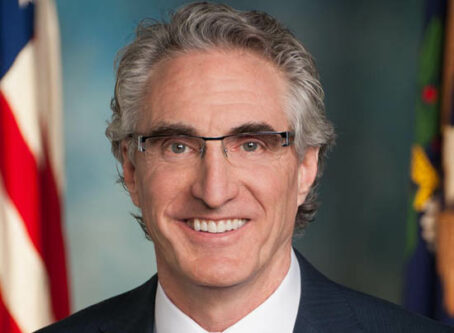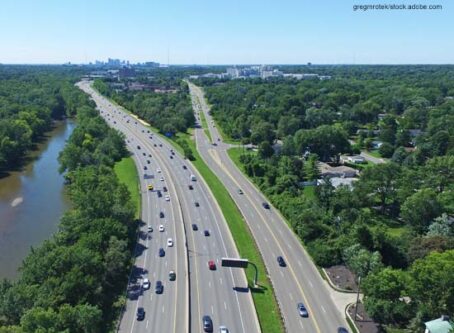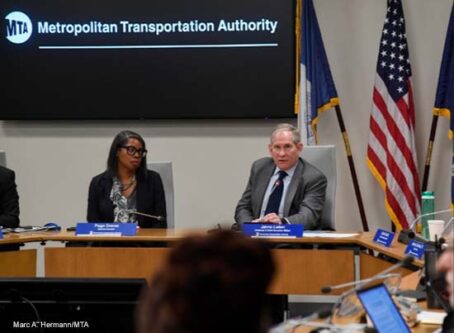Connecticut lawmakers continue to quarrel over governor’s toll plan
In an attempt to sell the idea of tolls, Connecticut Gov. Ned Lamont held a news conference explaining the Democrats’ toll plan. However, Republican lawmakers countered by calling the plan “dubious.”
On Wednesday, April 10, Gov. Lamont and fellow Democrat lawmakers went into detail their proposal to fund infrastructure projects. Republicans called it a “desperate attempt” to get the plan back on track after anti-toll protests have broken out.
Democrat toll plan
Sen. Carlo Leone, chairman of the transportation committee, said that after analyzing all the data and public input, Democrats have a tolling proposal for a dedicated revenue stream. Currently, there are three bills addressing infrastructure funding. Leone said lawmakers are mulling them over with the goal of coming up with one bill to vote on.
According to Rep. Roland Lemar, co-chairman of the transportation committee, the tolling plan will generate $800 million a year specifically for infrastructure projects.
“When we talk about tolling, we’re not talking about something we all want to do because we need to pay the bills,” Lemar said. “We’re talking about the future of our state.”
Democrats criticized the Republicans’ plan, which uses bonds to fund infrastructure. Under the tolling plan, Democrats claim that 40% of the toll revenue will come from out-of-state residents, as opposed to the 100% of funding from Connecticut residents that would come from bonds.
“Allowing 40% of our transportation infrastructure costs to be paid for by out-of-state residents who are driving on our roads every day is the right choice for paying for our needs,” Lemar said.
Lamont noted that Connecticut residents already subsidize roads in New York and Massachusetts with their tolls. Now, Lamont said, it is their turn to reciprocate.
Addressing concerns, Lamont said one of the bills includes language that says tolls will be automatically agreed to in 15 days if there is not a vote. Lamont said “that’s not going to happen.”
Regarding the number of gantries, Lamont said there will be no more than 50 gantries. That is a reduction from the 82 gantries suggested in a study published last November. Lamont also said the gantries would be on no more than the four major thruways identified: I-84, I-91, I-95 and Route 15. Furthermore, gantries will be placed approximately every six to seven miles.
With some residents worried that installing the gantries can take six to seven years, Lamont called that idea “nonsense.” He said U.S. Department of Transportation Secretary Elaine Chao told him the department can accelerate the process in half the amount of time. Once the state gets federal approval, it can borrow against anticipated toll revenue while gantries are being built.
As far as pricing goes, motorists with a Connecticut EZ-Pass and a frequent user discount could pay around 25-30 cents per gantry, or 4.4 cents per mile.
When asked how much more truckers will pay, Connecticut DOT Commissioner Joseph Giulietti said the idea of four times more is “in the right ballpark,” because it would be proportional to the additional wear and tear. However, Giulietti could not provide specifics on pricing before receiving federal approval.
Republican response
Republicans did not approve of the toll proposal.
Senate Minority Leader Len Fasano said the Democrats have no plan. Fasano pointed out the proposal has no idea how much it is going to charge and who it will charge. Essentially, the toll plan lacks important pricing details.
“I think it speaks to the tone deafness that the governor’s office has had relative to those people who have come out in significant numbers to say that tolls are not needed in Connecticut,” Fasano said.
In regards to the criticism of the Republicans’ bond-funded proposal, Fasano said the state is well under its borrowing cap. Furthermore, the governor’s toll plan also asks for borrowing.
“This is just a desperate attempt to try to get a toll plan – which has failed, which is going to fail this state and fail in the way it’s rolled out – back on track,” Fasano said.
Echoing Fasano’s statement on the vagueness of pricing, House Minority Leader Vincent Candelora said the toll proposal is an attack on the middle class. More specifically, no one knows how much it will cost them to drive to and from work.
Republicans say the per-mile costs are speculative at best, and are numbers on which the governor cannot commit. The governor wants “experts” to determine pricing, which Republicans call disrespectful to voters since it lacks transparency.
When asked if any toll plan would be acceptable to Republicans, Fasano said “All ideas are on the table.” However, he pointed out that studies have been done since 2009, and the numbers just do not work. He also noted that Massachusetts, New York and Rhode Island abide by a different set of rules, making tolls more viable in those states.
Rep. Laura Devlin, ranking member of the transportation committee, said that Connecticut taxpayers already pay a lot of money with $500 million in gas taxes, $330 million in petroleum gross excise taxes, as well as a car tax. She said nearby states do not have those level of taxes.
“And now we’re saying, ‘Connecticut resident, on top of all those user fees, we want you to come out of pocket on Day 1 of an additional $650 million,’” Devlin said.
Fasano was also worried about the additional tax.
“The underlying fear is the tax monster, which is the toll tax monster,” Fasano said. “That still sends goosebumps when I hear them talking about it.”









